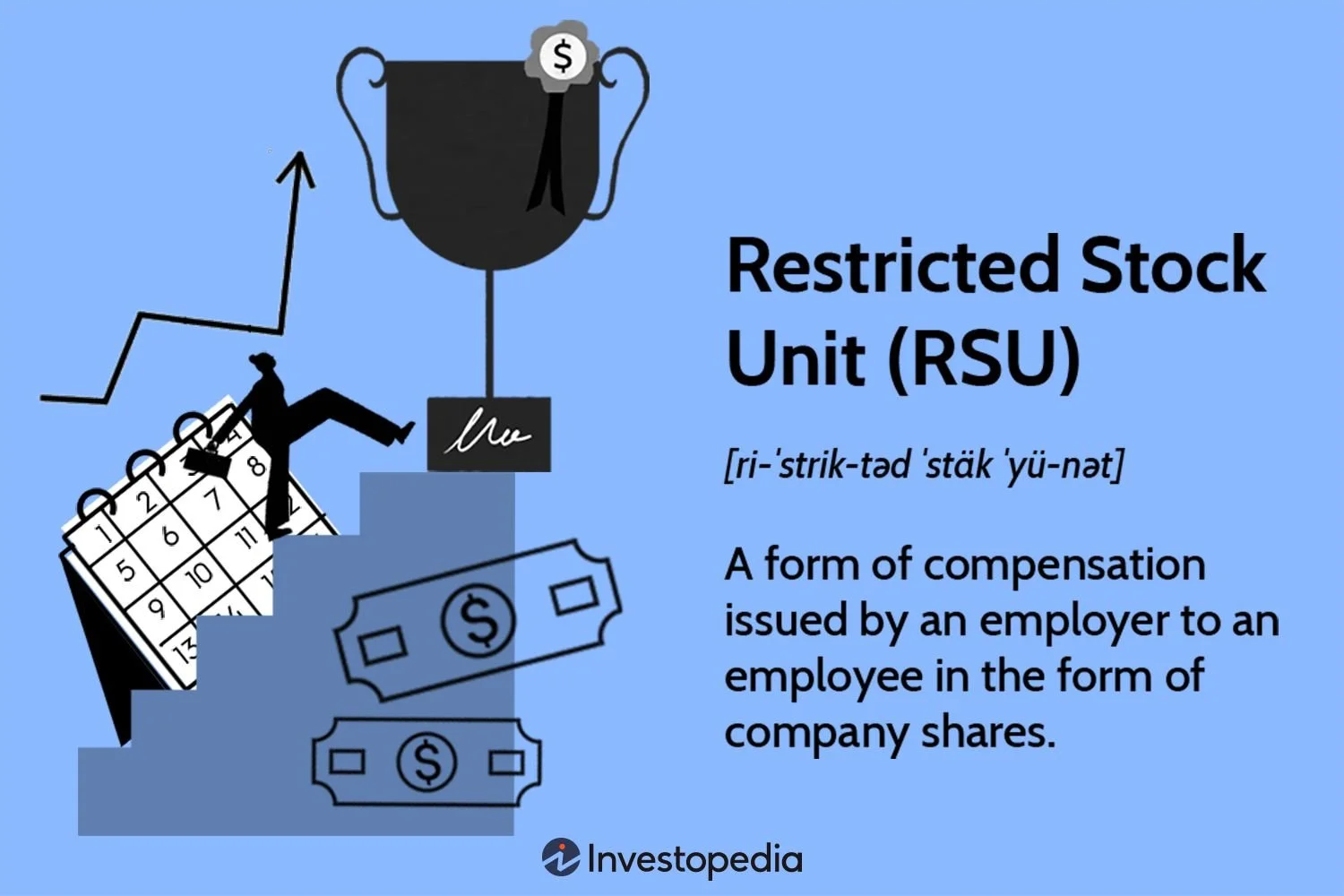Do RSUs Count As Income For A Mortgage?
Tech companies such as Google and Amazon, and other large corporations like Wells Fargo, offer employees additional compensation in the form of company stock. Known as restricted stock units (RSUs), some lenders will consider this type of compensation along with bonuses as qualifying income. Some will not. When it comes to counting RSU and bonus income, lenders have specific guidelines in place. Here’s what you need to know.
Key Takeaway
When considering acquiring a mortgage, it is important to understand how your total income will be considered by lenders. RSUs (Restricted Stock Units) are an investment vehicle that can provide employees with a part of their compensation from a company.
What are Restricted Stock Units (RSUs)?
Restricted Stock Units (RSUs) are a type of equity compensation, commonly granted by employers to employees as part of their overall compensation package. RSUs typically vest over a period of years and can be used to purchase company stock at the time it is vested. An RSU is considered income for mortgage qualification purposes, so if you own RSUs, you will need to include them in your income calculations when applying for a mortgage.
Can RSUs be Used as Income for a Home Loan?
Yes, RSUs can be used as income for a home loan. When applying for a mortgage, lenders may use your gross pay which includes RSU income or they may also calculate your average income over the past two years. You will need to provide documents showing any additional RSU-related income such as dividend payments and stock sales in order to accurately calculate the amount of mortgage you qualify for.
Are There Other Considerations When Using RSUs as Income?
Yes, there are a few other considerations to keep in mind when using RSUs as income for a home loan. First, you should know that RSU income is often taxed at higher rates than regular salary income. This means that your total taxable income could be greater when including RSUs, so your mortgage lender may require additional information such as a W-2 or 1099 to determine the amount of taxes you will owe. Additionally, if your RSU income fluctuates significantly from year to year, this could affect your ability to qualify for a home loan.
How to Calculate RSU Income
In order to accurately calculate your RSU income for a mortgage, lenders will typically want documents which show the number of RSUs held and the value of those RSUs at the time they were granted. This information can be requested from your employer or found in your financial statements. Additionally, lenders may ask for proof of any dividend payments associated with RSUs, as well as any gains or losses from stock sales.
How Can You Use RSUs to Qualify for a Mortgage?
Using RSUs to qualify for a mortgage can be an excellent way to increase your borrowing power. It’s important to remember, however, that lenders will look at all of your income when determining whether or not you are eligible for a loan. This includes both salary and RSU-related income so make sure that your documents accurately reflect the total amount of income you have. If you are concerned that your RSU income may not be enough to qualify for a mortgage, speak with a financial professional who can help you understand your options.
What Lenders Consider and What Documents You'll Need
When calculating income for a mortgage, lenders take into consideration all forms of compensation, including base salary and bonuses, as well as RSUs. For RSUs that are restricted but not yet vested – meaning that the company is holding onto them until certain conditions have been met – lenders may still take them into consideration, but with certain restrictions.
It’s important to note that lenders will also want to see a two-year history of income when considering an applicant for a mortgage loan. As such, if you are applying for a mortgage and have RSUs, it is important to provide your lender with full disclosure of all income sources when submitting your loan application.
The documents you will need to provide include your most recent pay stubs, W-2 forms, or tax returns that reflect your RSU income. You might also need to provide the vesting schedule for your RSUs, which can usually be obtained from your company's HR department or from the stock plan administrator. Company-specific documents that detail the terms and conditions of the RSU grant may also be required. Keep in mind that each lender may have their own specific requirements, so it's crucial to check with them directly.
There Are Times When A Mortgage Lender Won’t Accept RSUs
In certain cases, a mortgage lender may not accept RSUs as income for the purpose of qualifying for a home loan, or may require additional documents or evidence of other forms of compensation before considering an applicant. A few common instances include:
If your RSU income is received infrequently, such as once a year or less, and it isn’t enough to cover your total mortgage payments.
If you don’t have a steady paycheck that covers your mortgage payments for at least two years.
If you receive RSUs as a bonus or incentive, and the income can’t be verified by a past tax return.
Risks of Using RSUs As Part of Your Income
If the value of your RSU grant decreases, this could have a direct impact on your ability to qualify for a home loan. Additionally, since RSUs are taxed at higher rates than other forms of income, such as salary or bonus pay, you may find yourself in an even less favorable position if your RSU income is significant. Finally, RSUs are not always guaranteed to vest, meaning that you may have already begun counting on them as a form of income when you apply for a mortgage loan, yet find out later they were never granted due to certain conditions.
The Bottom Line: Planning Ahead is Key
When it comes to using RSUs as income for a home loan, the key is to plan ahead. Knowing what documents you will need, understanding how your RSU income may be taxed, and staying up-to-date with the company’s vesting schedule are all essential steps in the mortgage approval process. Doing your due diligence now will help you avoid any unpleasant surprises down the line, so make sure to have a thorough understanding of your RSU compensation before applying for a home loan.
It is also important to remember that lenders will want to see other forms of income when considering your application. If you are relying solely on RSUs as your source of income, it may be difficult to qualify for a mortgage. If this is the case, it may be beneficial to look for other means of income such as a second job or freelance work that can provide additional cash flow and help you qualify for your desired loan amount. Additionally, it may be possible to leverage any assets you have in order to increase your purchasing power and get the home of your dreams.


